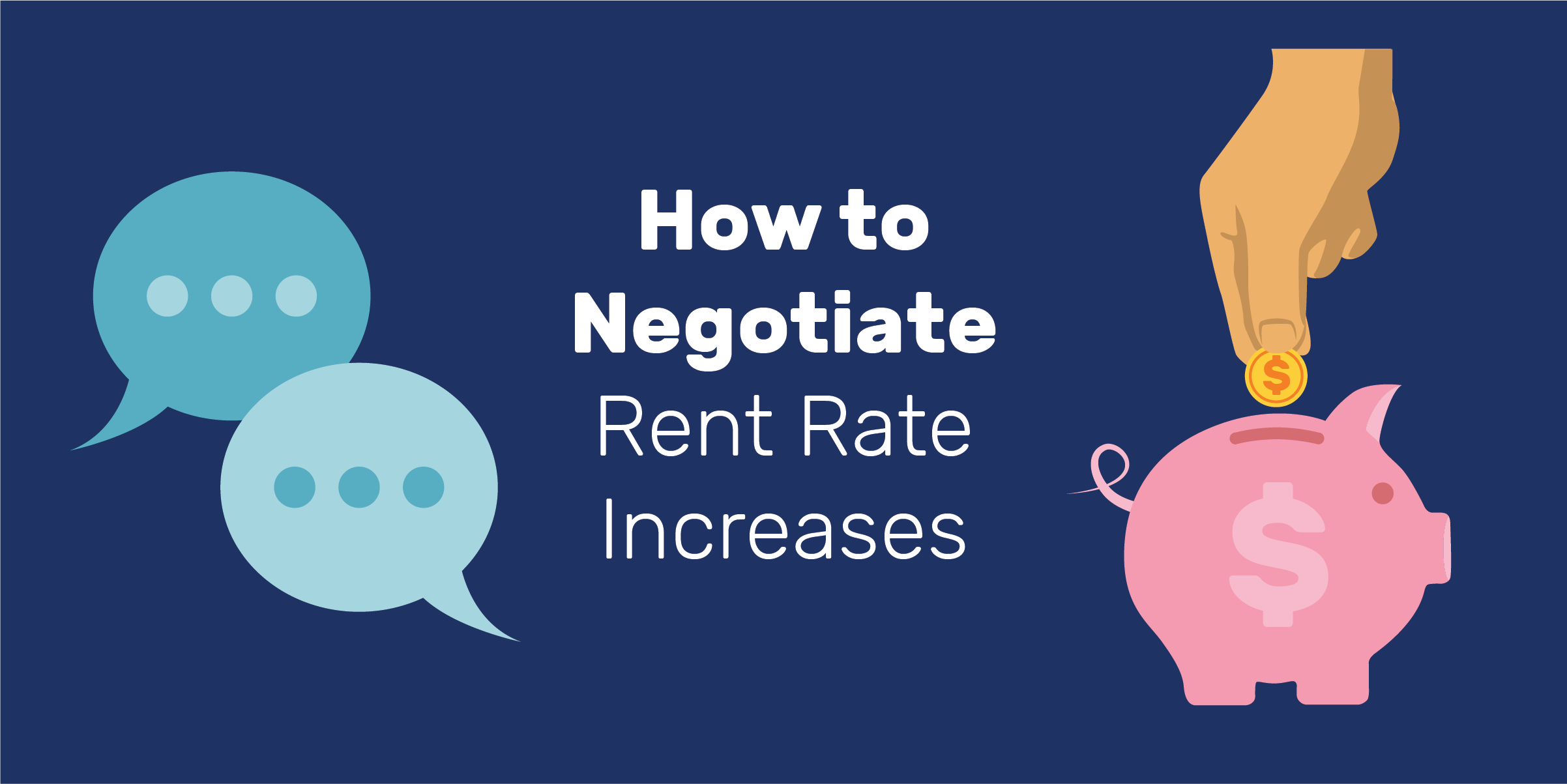5 Ways to Negotiate Your Rent When Rates Increase
Renting TipsRentReporters
March 12, 2021
7 mins read

It’s that time again, rent renewal time.
We all know what typically happens next, your landlord tells you rates are going up and you have a short window of time to either pay it, or find another place to live.
But did you know, can you negotiate with your landlord to keep your rent from skyrocketing? How you ask? The key is leverage!
Here are 5 easy tips to use when negotiating your rent rates with your landlord.
Research Your Rental Market
Research your market, specifically the vacancy rate of the market. Are you in an area of high or low vacancy rates? The higher the vacancy rate, the more leverage you have as a renter because landlords have a harder time filling vacancies, and vacancies are expensive for landlords.
You can use a website like this to see if you’re in a strong negotiating position just based on where you live!
Compare Square Footage & Amenities
Research rentals in your area and compare price per square foot as well as amenities. If your apartment is 900 square feet and there’s an apartment nearby that’s 1,050 square feet for about the same price, then you gain leverage because the increased rate isn’t competitive compared to other rentals in the area.
You can also factor in amenities and perks the rental property offers like discounts at local shops, complementary home security systems, services like internet, or smart thermostats that will save you money on heating and cooling.
If other apartment complexes in the area offer these perks and yours does not, and the prices are comparable to your increased rate, then you gain leverage.
Even if you can’t afford the extra costs of rent or the cost of moving, you now have something to compare your current lease against and a leveraging advantage to discuss with your landlord if you want to stay put without paying more money!

Take Our FREE Credit Literacy Quiz!
In just a few minutes, discover your credit knowledge level and get instant access to a FREE credit education course tailored to you!
Compare Move-In Specials In Your Area
This typically applies more to apartments than to house and townhome rentals, but it’s still good to research even if you are renting a house.
One of the most common move-in specials you’ll see from apartments is a free month or two of rent or waiving admin and application fees.
If you decide to leave your current rental, promotions like this could more than offset the costs associated with moving. Your landlord won’t want their residents leaving if there are move-in specials from competitors (because remember, vacancies are expensive!)
Negotiate with your landlord and let them know you’re willing to renew your lease instead of leaving for a competitor’s move-in promotion if you can keep your current rate. This just might be the ticket you need to persuade them!
Use Referrals To Your Advantage
Many apartment complexes offer referral bonuses if you refer someone to them, usually ranging from $300 to $500.
Often times it’s cheaper for landlords to pay referrals than to do their own marketing and much cheaper than vacant units. Use this to your advantage!
Try to negotiate by referring someone and asking your landlord to keep the referral bonus but NOT to raise your rent, if the math is favorable to you.
For example, let’s say your rent is going up to $50, that’s $600 over the course of the year and let’s say the referral bonus is $300.
If the landlord agrees to keep the referral bonus but not raise your rent, you’ve just saved yourself $300 over the course of the year!
Extend Your Lease Into More Competitive Seasons
Rental market rates go up and down depending on the season. Generally, prices are higher in the summer when there are more people actively looking, and lower in the wintertime when fewer people are looking.
If you signed your lease in the winter, by the time your lease is up rental rates will typically be lower and tenants harder to find. This is good for you if you want to negotiate.
Offer to sign for 18-months instead of 12-months, as long as you can keep your previous rate. Now the landlord will be able to charge higher prices in the summer when your lease is up.
This is a win-win! Your rates are locked in for 18 more months and the landlord gets to make more money and fill the vacancy more easily if you choose to leave.
Now You’re Ready To Negotiate With Your Landlord!
Once you’ve done your research and identified your options, the next step is to communicate with your landlord. Come to the conversation prepared!
- Research the market in your city or town and knowing how hard it is to fill vacancies
- Comparing the perks and amenities from other rentals in the area
- Knowing what the rates and move in specials are for competing properties
- Providing value by referring new tenants and
- Being willing to sign longer leases after proving you can pay your rent
This will give you leverage when negotiating the terms with your landlord and could save you thousands of dollars.
Now that you know these tips, don’t be afraid to negotiate with your landlord. You just might be surprised by the results and your wallet will thank you!


